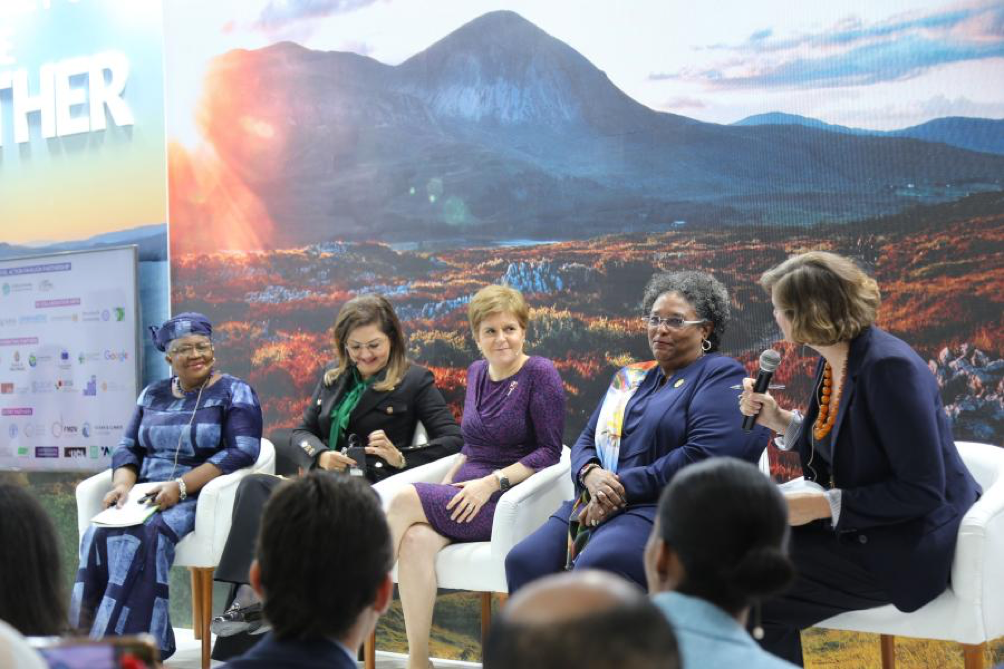"When Will Leaders Lead?” The State’s Role in Mobilising and Directing Finance for Climate and Health

TEXT: Sibel BÜLAY
On Nov. 7th, the opening panel of the Multilevel Action Pavilion focused on reimagining the financial architecture of climate action, with political and economic leaders calling for just trade policies. (The Multilevel Action Pavilion is the LGMA Hub for cities to share the stories of their climate action initiatives; as well as developments in the daily themes set out by the COP Presidency.)
Convened by the Scottish Government and the University College London (UCL) Institute for Innovation and Public Purpose, the panel was moderated by Mariana Mazzucato, University College London Professor, Economics of Innovation and Public Value.
The topic of investment is critical to delivering effective climate action. However, finance flows from both private and public sectors remain inadequate. In her keynote remarks, Barbados Prime Minister Mia Amor Mottley emphasized that developing countries have limited access to both climate funds and the latest low carbon technologies. Mottley called for a “just industrial transition,” noting that developing countries face “double jeopardy,” as their “blood, sweat, and tears financed the industrial revolution” but now they face climate disaster. She underscored that refugees from climate-ravaged countries face “xenophobic, racist” immigration policies. She stated “the world has found it easy to make capital move. I don’t know how an inanimate object can have priority over a breathing person.”
Hala El-Said, Egyptian Minister of Planning and Economic Development pointed to Egypt’s structural reforms focusing on infrastructure, agriculture, and information technologies. New financial instruments are being made available to the private sector in support of their initiatives to address climate change.
Ngozi Okonjo-Iweala, Director-General, World Trade Organization (WTO), stressed the need for new trade policies in light of lessons learned from the global COVİD-19 crisis. “(Y)ou can have all the finance in the world, and if the trade policies are not right you will not get anywhere.” Among the issues noted was the fact that global supply chains are too concentrated; and diversifying supply chains brings the added benefit of enhancing inclusivity. “I sing the song of resilience, but resilience also means inclusion,” she concluded.
Nicola Sturgeon, First Minister of Scotland, outlined three principles going forward: the responsibility of leaders to set the vision and create “mission-oriented institutions; using public finance to “crowd in” private finance; and the obligation of private companies to financially contribute to climate solutions.
El-Said emphasized the need to align development agendas and efforts to eradicate poverty in developing countries.
In addition to the insights and differing viewpoints shared by the panelists, it was heartening to see an all-woman panel of leaders. As we make progress on equality, progress on climate will follow.

